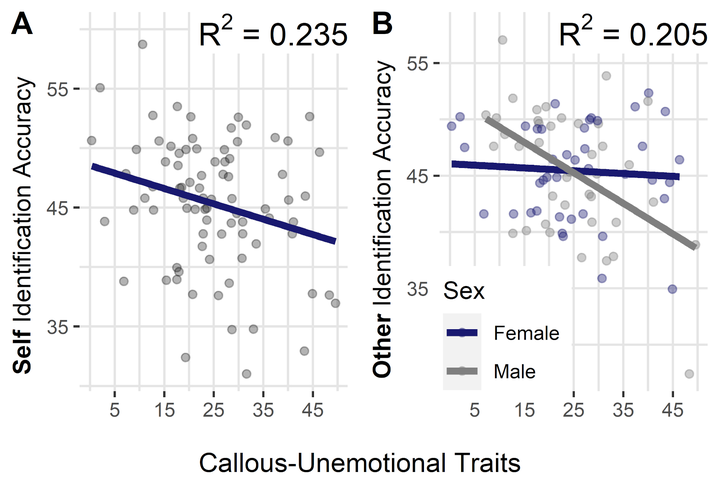Emotion Identification for Self and Other Associated with Callous-Unemotional Traits and Sex Differences in Early Adolescents

Abstract
Callous-unemotional traits (CU) associates with impairments in emotional responsivity. However, there is less evidence on associations with specific emotions and sex differences utilizing both self and other oriented emotional stimuli. Given that the nuance of associations with specific emotions (including sex effects) is critical for understanding core impairments of this antisocial phenotype, the current study employed a behavioral paradigm with both self and other emotional stimuli for specific emotions (happy, sad, anger, fear, neutral) with a sample of male and female early adolescents (females = 51%, age = 12.86 ± 0.75). We examined accuracy and reaction times on this task, along with moderating effects of sex, in relation to CU traits. Results indicate CU traits associated with overall self-emotions negatively and sex moderated CU traits negative association with recognizing others overall emotions. CU traits negatively associated with accurate identification of both self and other emotions (happy, sad, and fear). Sex moderated all other emotion identification but only sad emotions for self. No reaction time differences were found. These findings evidence important nuance in CU traits and sex effects with identifying self and other emotions. Results have important implications for clinical understanding of sex differences in CU traits that require further consideration.
Citation:
Winters, D.E., Sakai, J.T. Emotion Identification for Self and Other Associated with Callous-Unemotional Traits and Sex Differences in Early Adolescents. Child Psychiatry Hum Dev (2022). https://doi.org/10.1007/s10578-022-01429-1